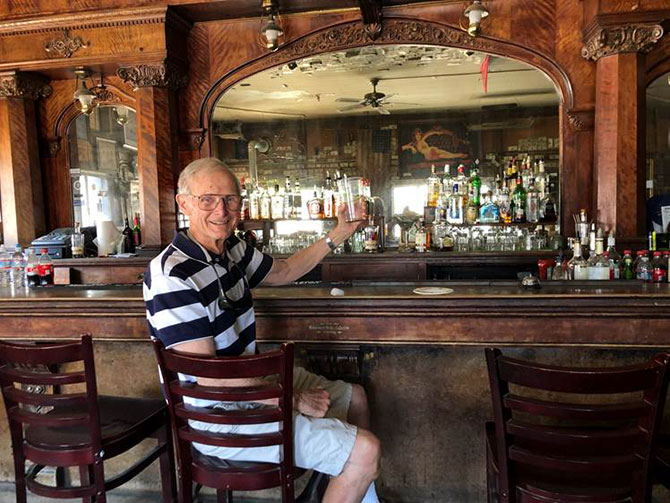Two Paradise Valley Estates residents, Dick Feaster and Dick Lubman, took a two-week driving tour of several national and state parks in October 2020. They covered Utah, Arizona and California on their trip. In this series, they share some of their pictures, relate impressions of each park, observations about traveling in the age of COVID and some of the interesting people they met along the way. This is their second article. Read the first article.
So, there we were, off on our trip to the national parks. I always look at traveling as an opportunity to learn things about the places where we travel. How many times have you been on a highway, passed a historical marker and wondered what it said? No doubt, you were in hurry and you might have said, “I’ll catch it next time.”
This time we were going to stop and learn something. Our first historical stop was in Genoa at Nevada’s oldest Thirst Parlor (Saloon). Genoa was established as a mail station in 1851 for The Jackass Express which was a mule train that traveled monthly from Sacramento to Salt Lake City. It also became part of the Pony Express Trail. Snowshoe Thompson carried mail to and from there to Placerville for twenty years (1856–1876) and was never paid. He actually did not use snowshoes but ten-foot skis. There was no reference as to why he was not paid.
Next, we stopped at the Cold Springs Station historical marker near Austin. A bar in Austin is the oldest in Nevada. This site is important because the Pony Express, the Overland Stage Station, and the Telegraph Station are within a short distance of each other. The “Pony” Express began in April 1860 and ended in October 1861. The Transcontinental Telegraph Line was completed on October 24, 1861 and brought the demise of the “Pony” four days later; the telegraph could do in ten seconds what it took the Pony Express ten days to complete. However, it was fascinating to learn “Pony Bob” (Robert Haslam) rode 380 miles in 36 hours because no one else would brave the danger of the Pyramid Lake Indian War. “Over the 18 months the Pony operated, only one mail pouch was lost, and service was held up for only one month during the Indian wars.”




